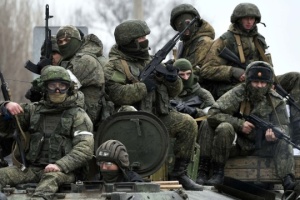
Ukraine intel releases Russian report on disruption of grain initiative
That’s according to GUR’s press service, Ukrinform reports.
A non-public final report "On the work of the Russian part of the joint coordination center during the implementation of the Initiative" is said to have been drafted for the top military and political leadership of the aggressor state.
"In general, the text of the document is devoted to the techniques that were employed to impede the implementation of the grain initiative and ultimately led to the termination of the agreement," noted the GUR.
According to the report, the so-called "joint coordination center" saw its main task as the ultimate reduction of the volume of grain exported within the initiative.
In particular, the report states that the inspection of bulkers was also one of the key elements of restraining the expansion of grain exports from Ukrainian ports.
At the same time, the activities of Russian inspectors were built in strict accordance with the developed guidebooks on such inspections. A total of 46 vessels were restricted from participating in the Initiative and 303 vessels were limited in their navigation for a total period of 342 days.
Measures to disrupt the grain agreement were divided into several stages. At the first, on the initiative of the Russian president, Russia’s participation in the grain initiative was suspended from October 29 to November 3, 2022. According to the report, this led to a drop in grain exports from 4.2 million in October to 2.6 million in November. The next stage is a set of measures to limit the admission of vessels to the Pivdennyi port, reduce the number of inspection teams (to no more than two), and suspend registration of grain carriers.
These measures allowed the Russians to "effectively restrain the number of ships heading to Ukrainian ports and significantly limit the volume of food exports from Ukraine, which in general prevented Kyiv from exporting about 20 million tons of cargo," the document says.
The Russians report that the smallest amount of food exported from Ukrainian ports (7.8 million tons) fell on the third stage of the Initiative (from March 19 to July 17, 2023).
Particular focus was put on the disruption of grain supplies under the World Food Programme initiative: "The attempts by Ukrainians to use the Black Sea initiative to continue the so-called ‘Grain from Ukraine’ program with the involvement of ships chartered along the line of the World Food Programme have been stopped. The registration of such vessels took place only after the submission of written commitments not to participate in such actions."
In conclusion, the authors of the report note: "The accumulated archive of knowledge will allow, when solving similar problems, to achieve a high level of efficiency in the shortest possible time."
This means that in case of continuation of the grain agreement, the Russians will employ all the accumulated "experience" to effectively disrupt any agreements.
"The report shows that all actions to disrupt the grain agreement are part of a single pre-developed plan. Also, the targeted shelling of the Ukrainian port infrastructure is just another step in its implementation," the intelligence agency says.
As Ukrinform reported earlier, referring to British intelligence, after Russia’s withdrawal from the grain initiative, Russian troops increased the number of strikes targeting southern Ukraine, in particular Odesa, including its civilian infrastructure.
Photo: Ministry of Infrastructure




